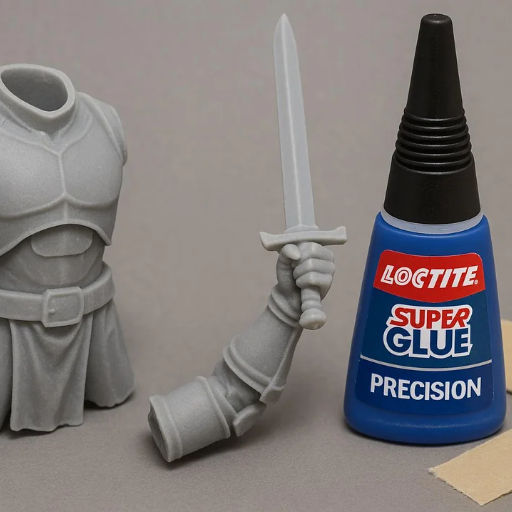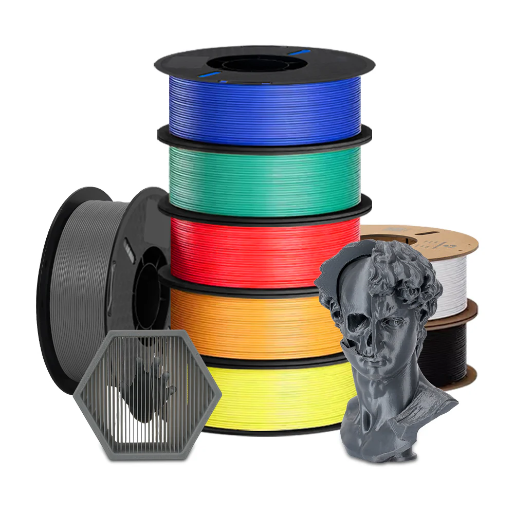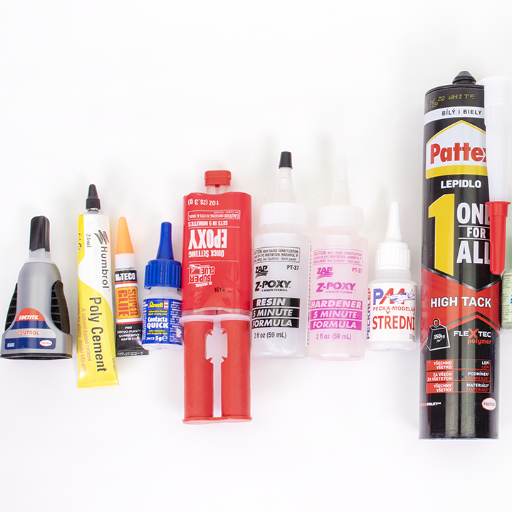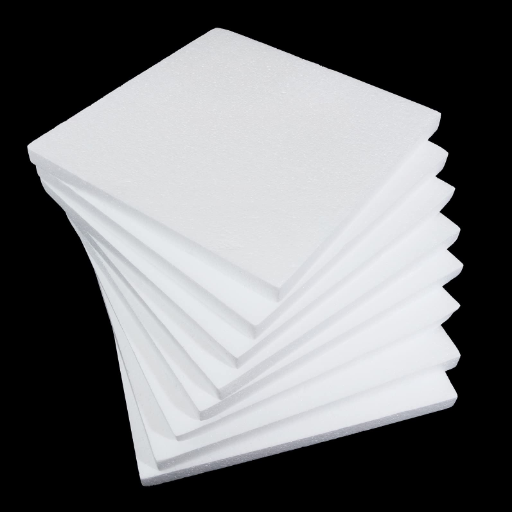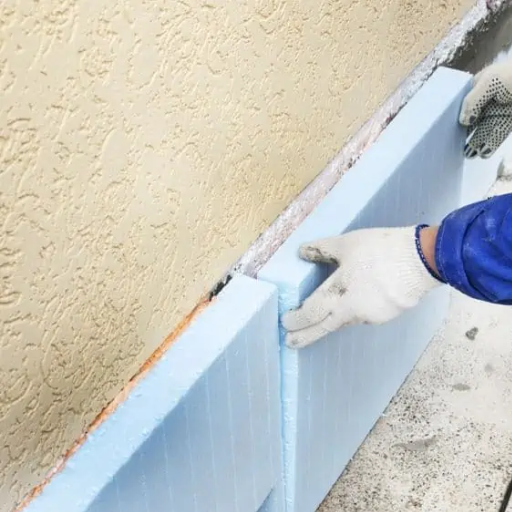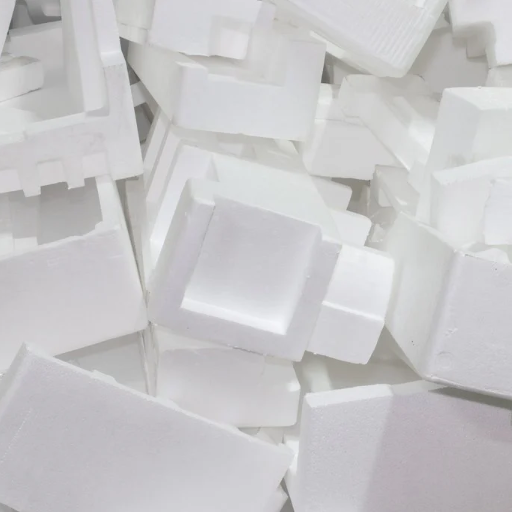The performance of the bond will be determined primarily by the efficiency of the selected adhesive, so metal bonding has to be approached with care. Among the most used adhesives available in the market today, Loctite and Gorilla Glue stand out due in large part to their unrivaled features. Still, one does not simply choose these two brands for metalwork applications as it does not cater to every need. This article will provide a thorough evaluation of these two options which includes factors such as bond strength, curing time, resistance to adverse environmental conditions, and ease of use. By the end of this guide, you will have a clear understanding of which adhesive solution best fits your metal-bonding requirements.
What Are the Key Differences Between Loctite and Gorilla Glue?

- Bond Strength: In the context of bond strength, Loctite usually excels over Gorilla Glue, especially in the metal-to-metal cases. Threadlockers and epoxy adhesives, for instance, are formulated to bond with high strength and are also meant to bear significant loads, and so, Loctite’s formulas are offered. While versatile, Gorilla Glue is better suited for general purpose adhesives or for use on porous materials such as ceramics and wood, while claiming to be considered strong.
- Curing Time: Loctite Adhesives have shorter curing times; many of their products reach full strength in twenty-four hours or less. This is ideal for tasks that have a tight deadline. On the contrary, Gorilla Glue is known for having a longer curing time. It often takes twenty to forty-eight hours to fully cure, depending on the environmental conditions.
- Resistance to Environmental Factors: When it comes to environmental factors resistance, Gorilla Glue being waterproof and temperature resistant looses to Loctite’s formulations which are engineered for durability against high temperature, moisture, and chemicals providing specialized resilience for harsh environmental conditions.
- Ease of Use: It is much easier to apply Loctite products as they come in precision applicators or syringes. Gorilla Glue is known for expanding foam like characteristics during curing. This may require more cleanup and prep work to control application which convenience at detail work.
Considering all these features in relation to your particular needs will help you choose an adhesive which best meets the requirements of your metal-bonding project.
Understanding the Composition of Loctite and Gorilla Adhesives
Loctite Adhesives product lines includes those formulated with cyanoacrylate or epoxies as the base. Instant glues, also called cyanoacrylates, form polymers at an exceedingly fast rate in the presence of water. Their bonds are unbreakable and tend to be the strongest when metal is joined because they can fill any gaps and clefts adequately. On the contrary, epoxy based Loctite adhesives are made from a resin and hardener that undergoes a chemical reaction to bond together permanently. This bond formed is high in strength and would be regarded as epoxy glue, thus, heavy-duty applications warranted.
Gorilla Adhesives incorporate polyurethanes with other chemicals for their purposes, most notably in Gorilla Glue. During the curing process, polyurethanes undergo expansion which allows them to fill gaps, thus creating stronger bonds. This feature of theirs is advantageous but must be used with a balanced approach to avoid leaving traces of glue. Gorilla’s other products include Super Glue which are marketed as cyanoacrylates, with similar features of instant bond capability as Loctite’s, but are customized for greater range of materials they can bond, hence, flexibility altering the strength of the bond.
How Does Each Adhesive Perform on Metal Surfaces?
As for Gorilla, while they do have metal adhesives, their bond is not as strong because they are more concerned with versatility and ease of usage. Loctite’s adhesives do much better than Gorilla’s when put to metal surfaces because of the bond’s anaerobic curing nature, which is tailored towards industrial and mechanical applications. They do however need to have specially designed bonds to endure high levels of temperature, vibrations, and chemical exposure, which makes them appropriate for precision work in machinery, automotive assembly, or any other demanding activities. Generally speaking though, for professional environments, these bonds do not offer the needed durability. Regardless, these bonds do owe their performance to their focus on general household and repair tasks. Suffice it to say, results do follow when the bond’s properties are aligned with the application’s demands.
Which Glue Works Best for Different Surfaces?
While choosing the right adhesive for different surfaces, it is essential to analyze the materials which will be joined and the glue’s environmental application. For wood surfaces, glues such as PVA (polyvinyl acetate) glue or wood glue provides sturdy bonds due to it trapping wood fibers and curing well. Furthermore, For metal surfaces, subpar performance is given by epoxy adhesives or ethereal metal glues because of their chemical structure which tends to give strong bonds along with high heat, moisture, and tensile strength resistance. For rigid plastics, they perform phenomenally well, but for materials similar to polypropylene or polyethylene, plastic specific adhesives are preferred, such as those containing solvents. Glass surfaces benift from UV curing adhesives or ethereal glass glues that make strong bonds. Finally, when seeing ceramics, two-part epoxies or adhesives for ceramics ensure impact resistance and durability. Always check with material and conditions before proceeding to guarantee optimum results.
Is Gorilla Glue Suitable for Repair Jobs Involving Metal?

Like all products, Gorilla Glue has its pros and cons. It can be used for metal repair work but depends on the type of glue used. With Original Gorilla Glue, it is based on polyurethane that does form some bond on metal surfaces. It also requires moisture and some type of force, like clamping. For better results, it is preferable to use Gorilla Epoxy as it is made specifically for metal repairs. It also provides high strength numbers for durability and impact while also having good protection against solvents. Whichever glue you select, remember to prepare the glue on metal surface by ensuring it is dry, clean, and does not have rust.
Exploring the Strength of Gorilla Super Glue on Metal
Gorilla Super Glue is a cyanoacrylate-based adhesive known for its ability to create instant bonds. Similar to all products, it also has pros and cons in terms of usage. Cyanoacrylate bonds snap instantly, so it is also durable on small metal repairs that do not exert much force. For small tasks like patchwork, Super Glue is perfect since it does not require any clasping and bonds in under 10 to 45 seconds while being dry and clean. For extensive projects involving metal, it is ideal to switch gorilla super glue out with something like gorilla epoxy. Super Glue is ideal for small plastic tasks.
Comparing Gorilla and JB Weld for Metal Repairs
- Longevity and Durability
While analyzing products made by Gorilla and JB Weld for metal repair, their durability and application needs to be taken into consideration. Gorilla Epoxy boasts of a remarkable bond strength along with quick work time, achieving full strength around the 24-hour mark. It is helpful for general repairs because it can withstand solvents and water to a reasonable degree. JB Weld, however, is known for its phenomenal heat resistance which goes up to 550°F when cured, along with JB weld’s amazing tensile strength of 5,020 PSI. This enables JB Weld to withstand heavy duty tasks including automotive or industrial repairs which require demanding temperatures and a high level of structural support.
- Application and Versatility
For ease of use, people tend to lean toward Gorilla products because of the simplistic mixing and application processes. Wrapping it up with a bow, convenience is best portrayed through Gorilla Super Glue, which, due to its no-mixing formula, offers rapid drying, making it perfect for quick fixes. On the contrary, for specific custom needs, JB Weld provides tailored solutions that require meticulous prep work like surface cleaning and precise mixing. For differing repair needs, JB Weld offers various formulations such as original epoxy or quick-setting epoxy, granting users flexible options.
- Environmental Resistance
Both systems resist environmental elements like water, oils, and some chemicals. JB Weld, however, is superior in more extreme conditions. Its greater resistance to heat and chemicals makes it more suitable for repairs that undergo severe conditions, like engine parts or outdoor fixtures subjected to changing weather.
- Final Recommendation
In the case of small repairs or projects that need immediate attention, Gorilla adhesives are practical and deliver results fast. On the other hand, JB Weld outperforms under extended heavy loads, high temperatures, or added structural stress. The choice between both is based on the precise details of the repair, including stresses, environment, and time.
How Does Loctite Compare to Gorilla Glue for Plastic Surfaces?

The primary distinctions in bonding plastic surfaces with Loctite and Gorilla Glue are their chemical makeup and bonding capabilities. Their most notable difference would be that Loctite works best on still non-porous surfaces with its quick cyanoacrylate binders, while Gorilla Glue fuses best with uneven surfaces. The former has a consistent bond strength on plastic, while the later’s depends on the type of plastic. Loctite is the ideal product when dealing with precision parts made of hard plastics, whereas gap-filling tasks are better accomplished with Gorilla Glue. Both products should be selected based on the type of plastic being used and the requirements of the task.
Which Glue Provides Better Adhesion on Plastic?
When it comes to choosing which glue works best on the adhesion of plastic, the choice is dependent on the type of the glue used. With Super Glue, a product’s cyanoacrylate formula tends to work especially with hard plastics such as ABS, PVC, and Polycarbonate. This happens because super glue is specially designed for plastics. On the other hand, Gorilla Glue is suitable with not only porous, but also less rigid surfaces, especially when dealing with gap filling. Due to its polyurethane base, it comes in handy at all times. The only problem is that it does not bond well with smooth and oily plastics such as PE and PP. For the best results when dealing with difficult plastics, it is known that using Loctite bonding system with a primer achieves the best results. In addition, Gorilla Glue Bonds in projects needing flexibility or moisture resistance.
What Do Reddit Reviews Say About Loctite vs Gorilla Glue?

Reddit users tend to discuss the advantages and disadvantages of each product based on their practical uses. For example, Loctite is one of the few adhesives that works well on minor repairs, especially on plastics when used with a primer, and it is praised for its meticulous application. Users appreciate how it cures quickly and cleans up after use. On the other hand, Gorilla Glue is considered to be better suited for a variety of uses and bonds strongly to many materials such as wood, metal, and ceramic. A lot of users claim that it is stronger when exposed to water and is ideal for outdoor projects. Some users believe, however, that the fact that Gorilla Glue expands to bond everything means that it is not suitable for detailed work. In the end, it appears that overly specific needs shape preference, since those needing detailed work tend to go with Loctite, while those seeking long-lasting work prefer Gorilla Glue.
Pros and Cons According to Reddit Users
From additional insights and user discussions from top-tier websites, its ability to bond different kinds of materials like wood, metal, and stone, alongside its exceptional strength and water resistance are noted as the advantage of Gorilla glue. Strength also makes it helpful in outdoor applications. The downsides of the glue that many users highlighted include its aggressive expansion while curing, which can hinder work that requires precision, and difficult cleanup processes due to its strong adhesive bonds.
In the opinion of Reddit users and other online resources, the advantages of Loctite include its ease of application, versatility, and precision for intricate repairs or small projects. Additionally, it offers a variety of formulations designed for specific materials. Among the drawbacks, less resistance to harsh outdoor conditions when compared to Gorilla Glue, lackluster performance on semi-porous materials, and softer surfaces were noted.
All in all, these adhesives seem to be in competition of who best serves the unique demands of the project at hand. It seems that Gorilla Glue serves best for robust outdoor endeavors while Loctite excels in detail-oriented, indoor-intensive projects.
Are Users Torn Between Loctite Super Glue and Gorilla?
Loctite Super Glue and Gorilla Glue are often pitted against each other because users are often caught in a dilemma with each of them having distinct strengths tailored for different applications. According to the top sources online, for heavily demanding outdoor projects that require enduring bonds, porous materials such as wood and stone, Gorilla Glue is the go-to. Its waterproof and temperature resilience mark its robust ability to withstand tough conditions. On the other hand, Loctite Super Glue is unrivaled when it comes to small indoor tasks due to its fast-acting nature, especially precision repairs. In the end, each project’s specifics, surroundings, and material compatibility largely makes the decision.
Why Choose Loctite Super Glue Over Gorilla Super Glue?

- Precision Application: For small repairs, Loctite Super Glue permits detailed fixing, enabling ultra-precise control over where glue is applied.
- Faster Curing Time: Loctite has a super fast setting time of just a few seconds, allowing for a fix to be made in seconds, reducing downtime.
- Clear Finish: Loctite provides a neater and more professional looking surface, as unlike some other brands, does not leave opaque residue.
- Material-Specific Compatibility: Expert-grade Bonding A non-porous material like plastics and metal surfaces are easily bonded together providing to dependability spanning several uses and materials.
Loctite Super Glue stands out as the optimal choice for individuals who value precision, visual finesse, and dependable performance for small or detailed tasks due to the aforementioned properties.
Benefits of Loctite Ultra Gel for Metal Projects
1. Focus On Flexibility: Loctite Ultra Gel stands out because it is made from a special rubber-infused formulation that offers superior flexibility. The result is that the glue is able to withstand shock and impact and cracks will not appear on metal surfaces.
2. Maintaining High Strength Bonding: Even under heavy duty metals, the adhesive guarantees robust connections, offering exceptional tensile strength.
3. Operating Resistance: Corrosion, extreme temperatures, and Loctite Ultra Gel are highly resistant to moisture, making it suitable even at home and outdoors for metal projects.
4. Exact Use: The smooth gel-like texture of the product helps in precise application that will not run or drip which is beneficial in narrow or vertical bonding areas.
5. Mixed Materials Usability: This product bonds effectively with various types of metals including steel, aluminum, and brass. It also bonds with materials plastic and rubber in multi-material assemblies.
Due to its reliable and durable features in harsh conditions, Loctite Ultra Gel is the ideal option for complex projects involving metal fabrication.
When to Use the Loctite for Best Results
To maximize effective use of Loctite Ultra Gel, consider the following use-case scenarios along with recommended best practices:
- High-Stress Bonding Applications: When fastening two pieces of metal or different materials together and needing resistance to impacts, vibrations, or thermal stress, employ Loctite Ultra Gel.
- Outdoor and Harsh Environment Repairs: Because of its water-resistant ot of range durability, this adhesive is perfect for any project that needs to withstand extreme temperatures and environmental conditions.
- Cracks or Gaps in Narrow Areas: This particular gel form is suitable to fill in gaps and securely bond in tight spaces and vertical spaces so that there are no drips during application.
- Quick and Strong Repairs: In projects that are time-sensitive and need immediate structural strength, Loctite Ultra Gel performs best because it sets quickly and the bond stays intact, even if strength is required almost immediately after the adhesive cures.
Used with specific project requirements in mind, Loctite Ultra Gel provides unmatched efficiency and long-lasting, professional-level results.
References
Frequently Asked Questions (FAQ)
Q: What is the main difference between Loctite and Gorilla Glue?
A: The main difference lies in their formulations and intended uses. Loctite is primarily known for its super glue gel options, which provide quick bonding for non-porous surfaces, while Gorilla Glue is a polyurethane-based adhesive that excels in bonding porous materials and offers a stronger bond in outdoor conditions.
Q: Which adhesive is better for metal: Loctite or Gorilla Glue?
A: For metal applications, Loctite super glue gel is often preferred due to its strong shear strength and quick curing times. Gorilla Glue can also work, but it requires a clean and dry surface and may expand as it cures, which can be less desirable for metal bonding.
Q: How do drying and curing times compare between Loctite and Gorilla Glue?
A: Loctite super glue gel typically sets within minutes and cures fully in 24 hours, making it suitable for quick repairs. Gorilla super glue gel has a longer curing time, often taking 24 hours or more to reach full strength, which may not be ideal for urgent applications.
Q: What are the best glue options for outdoor metal repairs?
A: For outdoor metal repairs, Gorilla glue is often considered one of the best glue options because it is polyurethane-based and water-resistant. However, for quick metal repairs, Loctite super glue gel is also an effective choice if the surface is clean and dry.
Q: Can Loctite be used on porous surfaces?
A: Loctite super glue gel is not recommended for porous surfaces as it works best on non-porous materials. For porous surfaces, Gorilla super glue gel or Gorilla glue would be more effective because they are designed to absorb into the material for a stronger bond.
Q: Are there specific applications where one adhesive is favored over the other?
A: Yes, for quick repairs of small metal parts like excavator parts or diesel engines, many users prefer the Gorilla super glue gel for its versatility. In contrast, for precision tasks requiring a cleaner finish, Loctite super glue gel is often favored.
Q: What do discussion forum mentions say about Loctite vs Gorilla Glue?
A: Discussion forums often highlight that users prefer Loctite for its speed and precision, especially in small-scale applications. In contrast, Gorilla Glue is mentioned for its strength and versatility in larger projects or repairs involving porous materials.
Q: Is there a significant price difference between Loctite and Gorilla Glue?
A: Generally, the price difference is minimal, but Loctite products may be slightly cheaper than Gorilla Glue, especially when comparing similar types like gel superglues. However, prices can vary based on retailers and specific product lines.
















